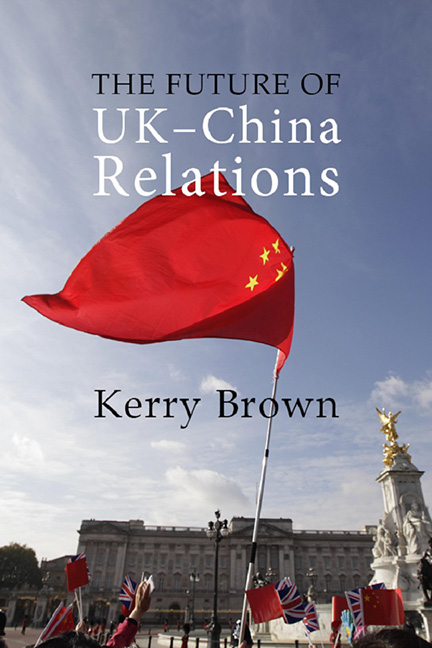Book contents
- Frontmatter
- Dedication
- Contents
- Dedication
- Preface
- Foreword by Tim Clissold
- Introduction
- 1 Tales from the golden age
- 2 What does China want? The case of the UK
- 3 Walk on by: what does Britain really want from China?
- 4 Who cares? The China circle in Britain
- 5 The good, the bad, and the Brexit: the UK and China outside the EU
- 6 The UK and China: scenarios for the coming decade
- Appendix: the UK’China balance sheet
- Further reading
- Notes
- Index
4 - Who cares? The China circle in Britain
Published online by Cambridge University Press: 24 August 2023
- Frontmatter
- Dedication
- Contents
- Dedication
- Preface
- Foreword by Tim Clissold
- Introduction
- 1 Tales from the golden age
- 2 What does China want? The case of the UK
- 3 Walk on by: what does Britain really want from China?
- 4 Who cares? The China circle in Britain
- 5 The good, the bad, and the Brexit: the UK and China outside the EU
- 6 The UK and China: scenarios for the coming decade
- Appendix: the UK’China balance sheet
- Further reading
- Notes
- Index
Summary
After all the razzmatazz, and high-level engagement, a relationship between countries boils down to the interaction of individual people at different levels and with different orders of complexity. Products and services between countries are traded, sold and delivered. But people sit at the core of this activity with their ideas, emotions, aspirations, attitudes, negative and positive prejudices, and above all their own motivations.
The EU and China recognize this with what is called a “people-to-people” strand of dialogue. There are formal events, memoranda of understanding and all the usual paraphernalia of diplomacy. But underneath, the main action boils down to getting people from European countries and people from China to sit on planes and travel across the world to meet and have direct interaction with each other. The more that happens, the more we can really talk about a healthy, multifaceted relationship. In the era of Maoist enclosure, Chinese people did not figure much in the daily lives of the British, nor of any other western country. Those Chinese that were in the UK largely came via Hong Kong, and were one of the smallest ethnic groups. The novelist Timothy Mo wrote in the 1980s an account of a young Chinese wife newly arrived in Britain to be with her husband, dealing with the bewilderment of coming to terms with a new bureaucratic system. The title of his work, Sour Sweet, captures one thing well: the ambiguity of the British-Chinese experience of being tolerated and yet never quite being accepted. In the UK people of Chinese ethnicity, even those born and brought up in the country have had to handle clichés and misperceptions about them in the society they call home. When I attended primary schools in Kent in the 1970s, I was taught that the Chinese are introspective and keep to themselves. The structures of the Cold War world seemed to confirm this. There were places where one might encounter Chinese – Chinese restaurants for instance, or Chinatowns in major cities – but rarely anywhere else. People of Chinese ethnicity did not appear much on television, nor in the media.
- Type
- Chapter
- Information
- The Future of UK-China RelationsThe Search for a New Model, pp. 67 - 82Publisher: Agenda PublishingPrint publication year: 2019

